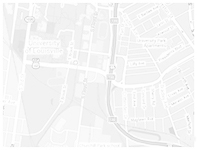Pandemic or No Pandemic - Your First Job Won't be your Last
PANDEMIC OR NO PANDEMIC - YOUR FIRST JOB WON’T BE YOUR LAST
By Stuart Esrock, Ph.D.
Perhaps your parents or grandparents worked in one job for the same company their entire career. Could that happen to you, too? What does a tight job market amidst the COVID-19 pandemic portend for you recent grads looking now for a position and those who will soon be finishing up your degree program and entering what could be a tight job market?
Career development experts say the reality is that for most fields, there is a lack of employment stability. In a coronavirus economy, that’s more true today than ever before. To amplify on that idea, the average person in the USA changes careers 3+ times. Furthermore, the U.S. Bureau of Labor Statistics reports the average member of the “baby boom” generation held 12.3 jobs between the ages of 18 and 52.
Armed with that information, it’s safe to assume you will likely NOT work in the same career for the same company in the same position for the entirety of your work life. Knowing that and living in the realities of the COVID-19 world, experts recommend that at this point in time, you should consider career options and fields that you had not previously thought about.
Career development professional Sharon Belden Castonguay conducted research during the recession of the 1990s that examined the varied routes that career paths take. She interviewed a variety of successful businesspeople about what they did during that economic downturn after they graduated college. Initially most had taken what Castonguay calls a “path of least resistance,” in jobs like office temp, store clerk, and restaurant hostess, in order to pay their bills. “When I interviewed them, they were in their mid-to late-thirties, and all had ultimately managed to achieve career success on the surface: gainful employment, and a level of prestige and income that they could be proud to report to their alumni magazines. But they weren’t all happy where they’d ended up. Most were satisfied, but others had continued on that path of least resistance for over a decade. They took advantage of new opportunities as the economy improved, but without really stopping to ask themselves how their interests were developing over time.”
This group of businesspeople Castonguay interviewed largely neglected an on-going process of networking, self-evaluation, and professional development. Unlike those folks who did not feel fulfilled in their careers, whatever your first job becomes, keep working to learn more and better your standing in the marketplace until you find the “right” career and position.
While it’s possible that your career path may mimic a grandparent or parent who worked for the same company in the same position their entire career, odds are that will not be the case, particularly as the nation recovers from the COVID-19 crisis and a tight job market. The path to your final career destination won’t be linear and will likely take many twists and turns along the way. Consider all of the options you have, and think outside the box about industries and fields you may not have considered previously. For now, you might have to take whatever position you can get. But remember that won’t be your last job, nor does that position have to define your career.
For more thoughts about getting a job after you graduate, check out the suggestions of employment consultant Lindsey Pollak.

